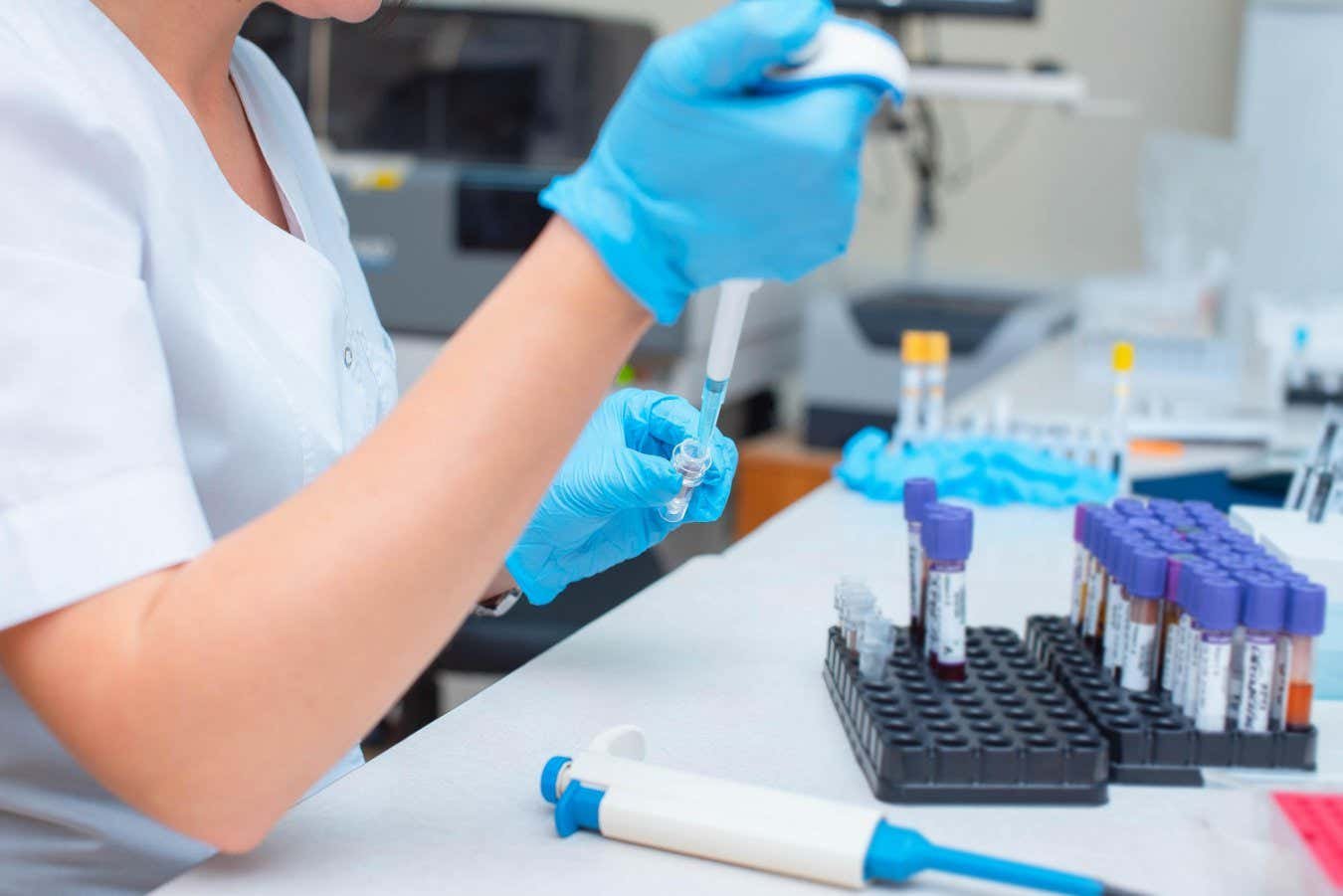
Biomarkers in blood can point towards certain conditions
Evgeniy Salov/Alamy
Amyotrophic lateral sclerosis (ALS) could one day be diagnosed with a blood test, after researchers have linked eight genetic markers to the condition.
People with ALS – the most common form of motor neuron disease – experience problems with walking, speaking, swallowing and breathing, which get worse over time and are eventually fatal. There is no cure, but treatments such as physiotherapy can reduce the impact of these symptoms.
Doctors generally diagnose ALS using symptom assessments, tests that measure the electrical activity of nerves and brain scans. There is a lack of awareness around ALS and doctors need to track how someone’s symptoms unfold over time before making a diagnosis, which delays treatment, says Sandra Banack at the research organisation Brain Chemistry Labs in Wyoming.
To help diagnose the condition sooner, Banack and her colleagues have been analysing blood samples from small groups of people with and without ALS. This led them to eight genetic markers that seem to exist at different levels in the two groups.
To confirm this, the team has now looked at the blood samples of 119 people with ALS, taken from a biobank called the National ALS Biorepository, and 150 people without the condition, finding that the same eight markers still differ between these groups. The markers have been linked to neuron survival, brain inflammation, memory and learning, says Banack.
Next, the researchers trained a machine learning model to distinguish between those with and without ALS, based on the marker levels of 214 of the participants. They then put it to the test on the remaining 55 participants, finding that it correctly identified 96 per cent of ALS cases and 97 per cent of people without the condition.
“This is fantastic stuff,” says Ahmad Al Khleifat at Kings College London. “The test performs well at distinguishing between those with and without ALS.”
The researchers estimate the test would cost less than $150 and hope it can be available within two years, says Banack. But first it needs to be validated on a separate group of people. If the team partners with the right diagnostic lab, the test could be available in a year, says Banack.
Topics:













Leave a Reply